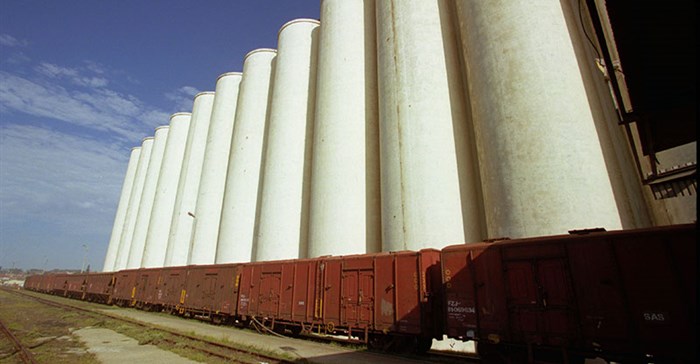
The recent refurbishment at the East London terminal of the rail line connecting to the grain elevator and hinterland has already proven to make a significant difference in reducing logistics costs. This innovation is also predicted to offset and alleviate some of the road congestion that has recently raised concerns by residents about traffic congestion resulting from an increasing amount of trucks transporting grain to the East London port.
“The grain elevator has experienced an increase in volumes handled with the rail revitalisation, allowing the train to load 60 wagons a day. Our most recent success story includes three loads of 40 wagon trains of maize being loaded for Zimbabwe market, the last time this operation was conducted was in 2008,” stated East London Terminal manager, Wandisa Vazi.
Siya Mhlaluka, general manager, Eastern Cape Transnet Port Terminals added that East London boasts the largest grain silo on the South African coastline with design capacity of four million metric tonnes per annum and an operational performance averaging 170 tonnes per hour. “The terminal has the ability to manage higher volumes and will be advantageous in the coming large import of maize. The facility is also strategically positioned to support the agricultural strategy of the region and the country. Through the investments made by Transnet in equipment, infrastructure and training of our people at our various terminals we are geared to accommodate inevitable future demand. The South African government views the country’s ports and terminals as key engines for economic growth and the Eastern Cape is ready to support this strategy.”
So far, SA has only imported 155,581 tonnes of white maize and has 845,000 tonnes to go to reach its predicted need. “We are confident that with our highly experienced workforce and continuous improvements in safety measures in place, the terminal is ready to handle the demand for maize. Through constant engagement with key stakeholders, the terminal is committed to ensuring that the port and its rail connectivity are aligned to this demand,” concluded Vazi.